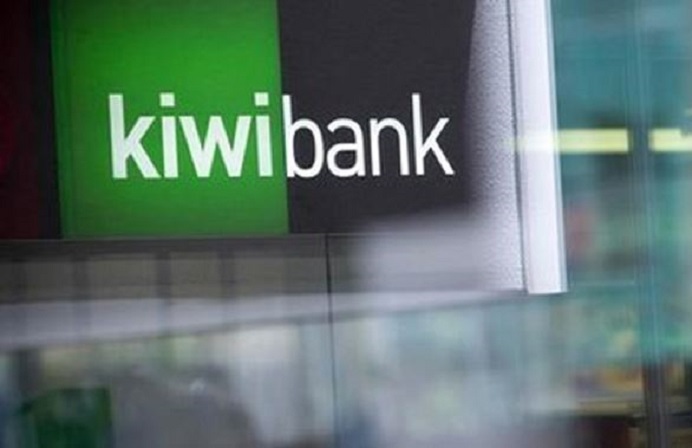
New Zealand’s competition regulator has called on the Government to implement a raft of regulatory and structural changes, including fast-tracking the rollout of Open Banking and providing a competitive capital boost to the state-owned Kiwibank, to drive increased competition in what it argues is an overly concentrated banking market.
The call from the Commerce Commission comes after a more than year-long market study into competition within NZ’s banking sector. Commission chair John Small argues, based on the results of the survey, that competition in the sector “isn’t working as it should”.
The final report observed “a stable, highly profitable, two-tier oligopoly with no disruptive maverick and a lack of obvious or aggressive price competition”.
“In a well-functioning market with strong competition, we’d expect to see more aggressive strategies to win customers from other banks.
“What we see in New Zealand is that the major banks have little strategic differentiation, and their growth targets focus on maintaining market share and protecting margins and profitability,” Small said.
New Zealand’s big four banks – ASB, BNZ, Westpac New Zealand and ANZ New Zealand (all separately owned by Australia’s big four banks) – collectively hold a more than 85 per cent market share and 90 per cent of the residential mortgage market.
Among its recommendations, the Commission has called on the New Zealand Government, owner of the country’s fifth largest bank Kiwibank, to do “what is necessary to make Kiwibank a disruptive competitor, including providing it with greater access to capital.
“Kiwibank appears to have the greatest potential to constrain the major banks in the near term and disrupt a market that is otherwise stable due to lack of competition. However, Kiwibank does not yet have the sufficient capital or the systems required to continuously challenge the major banks aggressively,” the report read.
“To change this the Government, as Kiwibank’s owner, should consider increasing its access to capital and supporting a strategic refocus of Kiwibank’s efforts to compete more strongly with the major banks (which could involve significant systems development).”
While acknowledging concerns with Kiwibank’s suitability as a “maverick disruptor”, including falling customer satisfaction ratings, Fair Trading Act charges, its state ownership and its efficiency and profitability, the promotion of Kiwibank as a direct challenger to the big four, it says, is likely “the best option in the short-to-medium term to meaningfully promote competition”.
The report also flagged concerns with impediments to innovation and digital disruption in the local banking market, with a lack of market competition leading to innovation inertia.
“What we see in New Zealand is that the major banks have little strategic differentiation, and their growth targets focus on maintaining market share and protecting margins and profitability,” Small said.
This, he added, has resulted in “limited investment in innovation, muted competition and some demographics being poorly served currently”.
Among the concerns flagged in the report regarding flatlining innovation include:
- Both major banks and Kiwibank appearing unwilling to prioritise core banking systems upgrades, which the Commission argues has “constrained [the] ability of banks and fintechs to innovate and compete”. This is contrasted with Australia, where the Commission identified “more innovation by the parents of the four large New Zealand banks”;
- excessive regulatory costs, which disproportionally affect smaller, potentially more innovative banks;
- a lack of disruptive innovations from fintechs, as witnessed overseas, with the Commission noting that local fintechs still face “a range of impediments to entering and expanding”;
- consequently, big four banks are not delivering their own competitive digital-only challenger subsidiaries like NAB’s ubank or CBA’s Unloan, or investing in rapid home loan applications enabled by modern core banking systems;
- slow progress towards Open Banking. The Commission argued that “Open Banking has enabled smaller challengers overseas, and we expect it to boost innovation and competition for personal banking services in New Zealand”.
The Commission notes that without “a regulatory backstop” for Open Banking, the major banks, who have little desire to change the profitable status quo, “have been left to set the nature and the pace of change”.
“As a result, New Zealand is now falling behind the rest of the world, and industry [has] recognised the value of regulatory input into the coordination that is required.”
Big step forward in Open Banking
The Commerce Commission has demanded the creation and rollout of a “fully operational” Open Banking system by June 2026.
To do so, it is advocating a Government-led “acceleration” of Open Banking framework and architecture development.
For Small, a Consumer Data Right (CDR) scheme would be “a game-changer” for the country, “giving thousands of underserved Kiwis access to financial services and revolutionising consumer choice”.
Small said that Open Banking’s industry-led progress to date has been “far too slow”, arguing that its progress demands “a unified approach from industry and Government and a clear timeline if the benefits are to be realised”.
The Government, further, should serve as an early adopter and take an “all-of-Government approach to adopting payments enabled by Open Banking functionality”.
The Commission also took a critical step forward in its delivery of an Open Banking architecture, granting independent payments authority Payments NZ conditional authorisation to develop and apply a partnering framework “relating to the provision of API services by API providers to third parties”.
“This is intended to make it easier for third parties to work with API providers, and accelerate the delivery of Open Banking in New Zealand,” the Commission said.
As a “regulatory backstop”, the Commission is pushing for the delivery of an interbank payments network designation, which would serve to speed up Open Banking (by an estimated 12 months) and enable the Ministry of Business, Innovation and Employment (MBIE) to focus on the Customer and Product Data (CPD) Bill necessary to roll out the country’s CDR.
Based on the Government’s support of the Commission’s recommendations, the Commission will move to convene a steering group to progress development of Open Banking, “with broad representation across banks, fintechs, Government and consumer groups”.





